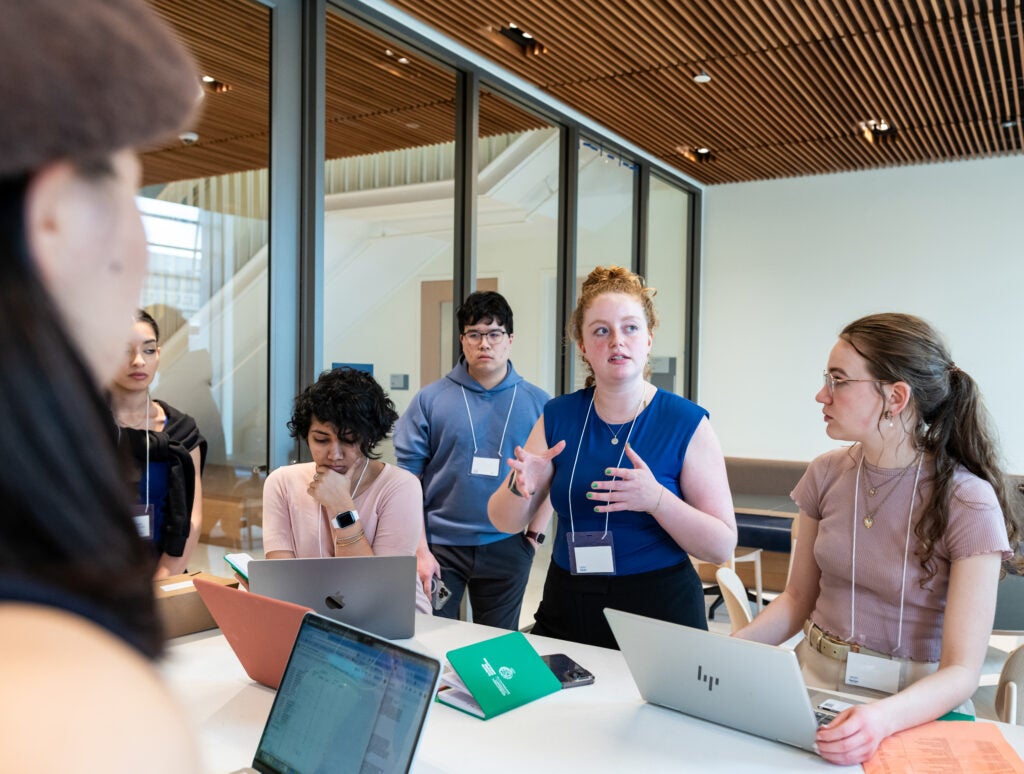What is public policy?
Georgetown University’s McCourt School of Public Policy explains what public policy is and how it plays a role in our everyday lives, from ensuring access to healthy foods and high-quality health care to limiting the impact of climate change.
Public policy is everywhere and touches everything, from the water we drink to the air we breathe. When a systematic problem exists, policymakers seek to find an answer.
Public policy is the avenue through which policymakers and practitioners work to address many of society’s most complex challenges. It involves the actions and decisions made collaboratively between governments and institutions to tackle public issues like advancing shared economic growth, equitable access to high-quality health care and education and limiting the impact of climate change. Understanding how to craft and analyze public policy is essential for those aspiring to drive positive change around the world.
Public policymaking
The genesis of policymaking starts with identifying a problem or issue in society, such as emerging social, economic or environmental concerns. Policymakers then conduct research and analyze data to understand the relevant contributing factors, such as past and current policies, that create these problems and determine how to address the issue’s core effectively.
Effective policymakers understand the importance of connecting policy to the people it’s designed to serve and are prepared for the challenges of working across differences. As such, collaboration and consultation with impacted stakeholders across government, public and private sectors and the general public are weighed as part of the policymaking process. This critical stakeholder dialogue provides diverse perspectives, interests and expertise, allowing for comprehensive and inclusive decision-making.
Other factors also influence the policymaking process. Political elements such as public opinion and party ideology, economic considerations like growth goals and market dynamics, and environmental factors such as resource availability and the effects of climate change all shape policy solutions.
Analyzing public policy

Public policy evaluation allows policymakers and stakeholders to measure and assess effectiveness. Implemented policy intends to achieve an agreed-upon goal, so by reviewing outcomes, impacts and cost, policymakers can understand if the policy benefits society as a whole. Policymakers might use tools like regression analysis, causal inferences and cost-benefit analysis to demonstrate impact.
Ethical considerations and potential unintended consequences are also critical to policy analysis. Policymakers must consider the ethical implications, consequences and distributional effects of their proposed solutions to ensure equitable policies are developed and implemented.
Careers in public policy
By understanding what public policy is and how it can be a vehicle for change, public policy professionals play a crucial role in developing, analyzing and implementing solutions that improve lives and address societal issues, from health care and education to environmental sustainability, social justice and economic development.

Certain skills are essential for professional success in public policy, including strong analytical and research skills to analyze complex problems, collect data and evaluate policy solutions. Effective written and verbal communication skills are necessary for framing and messaging, presenting findings, making recommendations and advocating for policy changes. Additionally, critical thinking, collaboration and ethical leadership skills are highly valued.
Public policy offers diverse career paths. Some professionals work directly in government agencies, shaping policies and implementing programs. Others work in research institutions or think tanks, conducting studies and providing expert advice. Nonprofit organizations and advocacy groups offer opportunities for those passionate about specific causes. Consulting firms and private companies also hire public policy professionals for insights on regulatory issues and public affairs. Notable employers include the United States Department of State, the District of Columbia Mayor’s Office, The World Bank, The Pew Charitable Trusts, the World Resource Institute, Deloitte and more.
